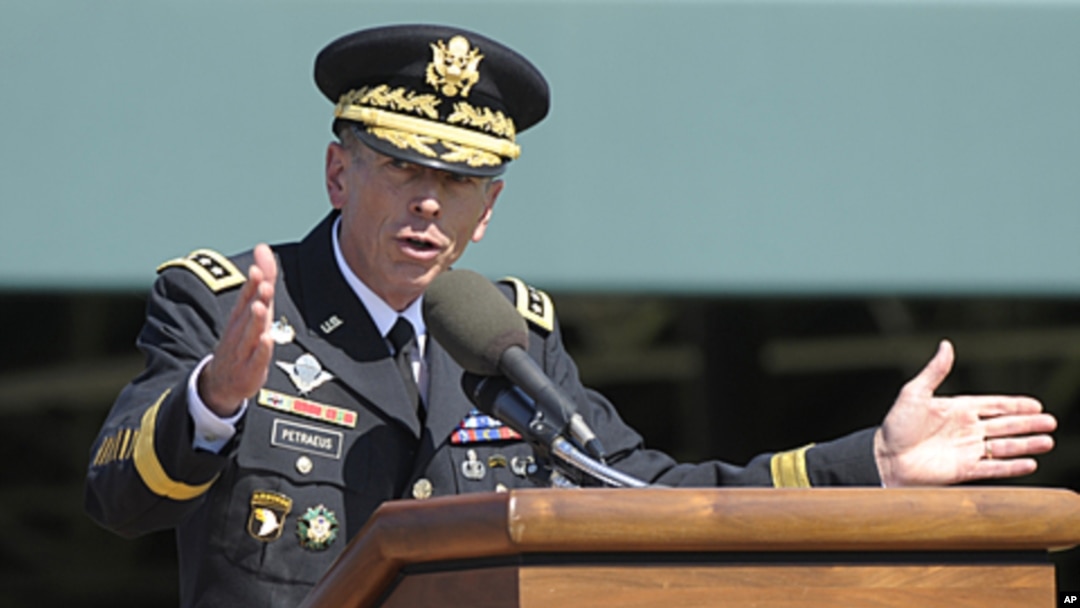General David Petraeus bid farewell to the U.S. military where he served for 37 years. He is credited, among other things, with turning around the U.S.-led war in Iraq and working to contain violence in Afghanistan, where he commanded U.S. forces.
In a ceremony with much pomp, the U.S. military said goodbye to one of its generals considered a star by many. In his 37 years in the army, Petraeus had many successes, most recently commanding U.S. forces both in Iraq and Afghanistan.
He is best remembered for changing the way U.S. forces deal with counterinsurgency conflicts in the post-Cold War era. He leaves the military as concerns grow over the Pentagon's plan to slash more than $350 billion from its budget in the next 10 years.
In his parting remarks at Fort Myer outside Washington Wednesday, Petraeus warned against cutting too deeply.
"I do believe that we have re-learned since 9/11 the timeless lesson that we don't always get to fight the wars for which we are most prepared or most inclined," Petraeus said. "Given that reality, we will need to maintain the full-spectrum capability that we have developed over this last decade of conflict in Iraq, Afghanistan and elsewhere."
Petraeus heads to a new job as Director of the Central Intelligence Agency (CIA) next week, a post previously held by the new Defense Secretary, Leon Panetta.
Nora Bensahel is Deputy Director of Studies and Senior Fellow at the Center for a New American Security in Washington. She says Petraeus changed the conventional U.S. military strategy of killing or capturing those who attack the United States - a strategy she says had further enflamed violence in Iraq. Petraeus' new approach, she says, brought down the level of violence.
"The counterinsurgency doctrine and strategy that was executed in Iraq starting in late 2006 and through the rest of General Petraeus' tenure there was, instead of staying at a far distance and trying to kill the adversary was a true counterinsurgency strategy of having troops live within the population areas, have a permanent presence there so that they could provide 24-hour protection and getting to know the population to get tips on who was involved in the various activities," Bensahel explained.
The general chose to retire from the military before going to the CIA as some in Washington raised questions of whether he might militarize the intelligence service, which has already come under criticism for its alleged use of unmanned aircraft and direct attacks against specific targets.
Petraeus Bids Farewell to US Military

Former Commander of International Security Assistance Force and US Forces-Afghanistan General Davis Petraeus speaks during an armed forces farewell tribute and retirement ceremony at Joint Base Myer-Henderson Hall in Arlington, Virginia, August 31, 2011

